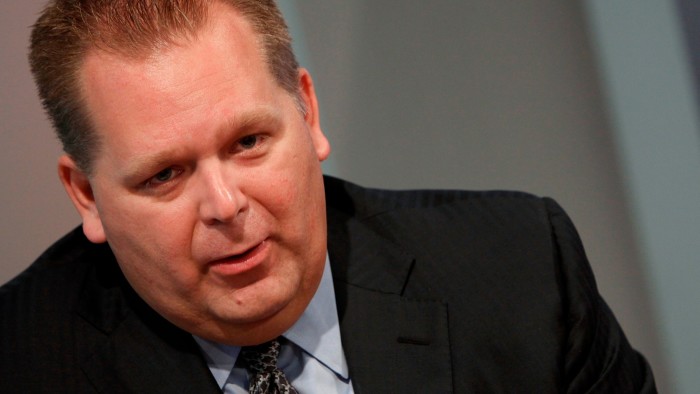Unlock the Editor’s Digest for free
Roula Khalaf, Editor of the FT, selects her favourite stories in this weekly newsletter.
A long-anticipated showdown between some big names on Wall Street finally reached a New York court last week, offering a raw glimpse into the inner workings of high finance.
The civil trial is the culmination of a decision a decade ago by the top tier dealmaking shop Perella Weinberg Partners to fire its then-star banker Michael Kramer. PWP claims Kramer improperly launched a rival advisory firm to be staffed by several then-PWP bankers, an alleged violation of non-solicitation restrictions in his employment agreement.
Such disputes rarely reach open court. But the bitterness here is considerable enough that the sides are asking a state court judge to rule on any damages. With tense testimony, it has already lived up to the expectations of Wall Street watchers.
PWP says Kramer owes it tens of millions of dollars for ill-gotten bonuses, lost business and the cost of replacement hires. Kramer counters with a demand that $60mn equity and deferred compensation that he claims was improperly seized by the firm to be returned.
In the early years of PWP, which was founded in 2006, many of its top partners were colleagues of founders Peter Weinberg and Joe Perella from their previous homes at Goldman Sachs, Morgan Stanley and First Boston. In 2007, Kramer was an early hire but was, however, not previously close to either of the founders.
But he was a big name and personality in the esoteric world of advising financially distressed companies, a business that meshed well with Perella and Weinberg’s expertise in large public company mergers. And if PWP wanted to prosper, it was essential to make bets on bankers who were not in the immediate circle of the founders. Financially, the wager was successful. In eight years at PWP, Kramer generated enough business to accrue $90mn in cash pay and equity. But the court heard claims from Weinberg that there were heavy tensions between the banker and the firm over the scope of his role.
According to Weinberg, the partners of PWP wanted Kramer to remain a “producer”— he brought in plenty of deal fees from which even his detractors benefited. Weinberg directly told Kramer that he was widely disliked by the firm’s roughly 30 partners. In one email Weinberg wrote: “Our people are repelled by [Kramer] as a manager/leader”. But Weinberg said Kramer insisted on more power, even aspiring to oversee the entire M&A business.
Kramer will offer his radically differing side of the story in the coming days. One Weinberg email indicated that Kramer had complained about inadequate pay, advancement and, ultimately, respect. The email suggested Kramer believed the PWP mistreated him and his restructuring team — “like a red-headed stepchild of the firm”.
Weinberg testified he personally valued Kramer more than his other colleagues. He said he cared enough about his success to hire an executive coach for him and repeatedly met Kramer in and out of the office to broker peace. Weinberg, however, also made the decision to seek the termination of Kramer’s employment. Court testimony shows the banker, before Kramer could present any explanation, was fired via voicemail within 48 hours of PWP learning from a subordinate of Kramer of the alleged defection plot.
The court will sort out any contractual violations and resulting torts. Liability aside, the case though is a sharp lesson in how delicate the operations are of a fundamentally human business that is equally a team and individual sport.
Often, despite Wall Street’s reputation, it is not all about money. “A profound level of empathy from managers is essential in dealing with outsized egos,” says Jonathan Knee, a veteran banker who has studied both financiers and media moguls as a Columbia Business School professor. “And bankers do not generally over-index on self-awareness, which often leads supervisors to avoid giving candid feedback, and can create a vicious cycle of bad behaviour and bad management,” he added.
Weinberg himself told the court of the tension between internal administration and outward business generation. “The term we always use was management is a responsibility not an opportunity. And in fact we didn’t pay for management . . . it was all about production,” he testified.
Kramer is now the chief executive of his own firm, Ducera Partners, which is thriving. His colleagues at the new firm face a one-year non-solicitation clause and mediating any future staff blow-ups is now Kramer’s responsibility. And so Weinberg and Kramer have, finally, found some common ground.
sujeet.indap@ft.com
https://www.ft.com/content/f2bdbc7e-dba3-41c7-9c0c-c9969324d56a


